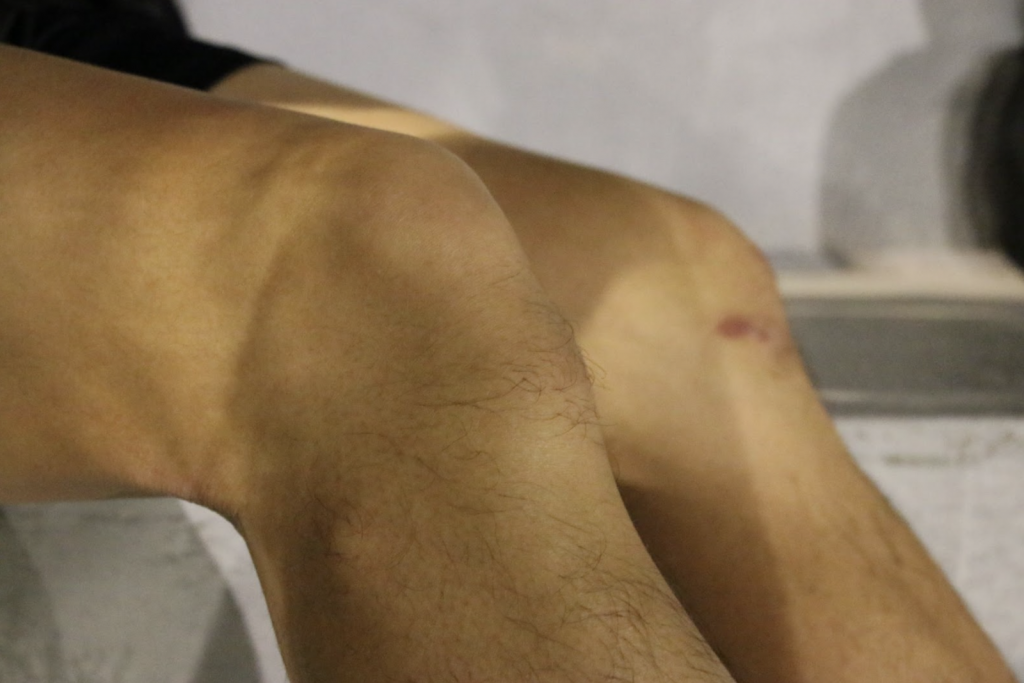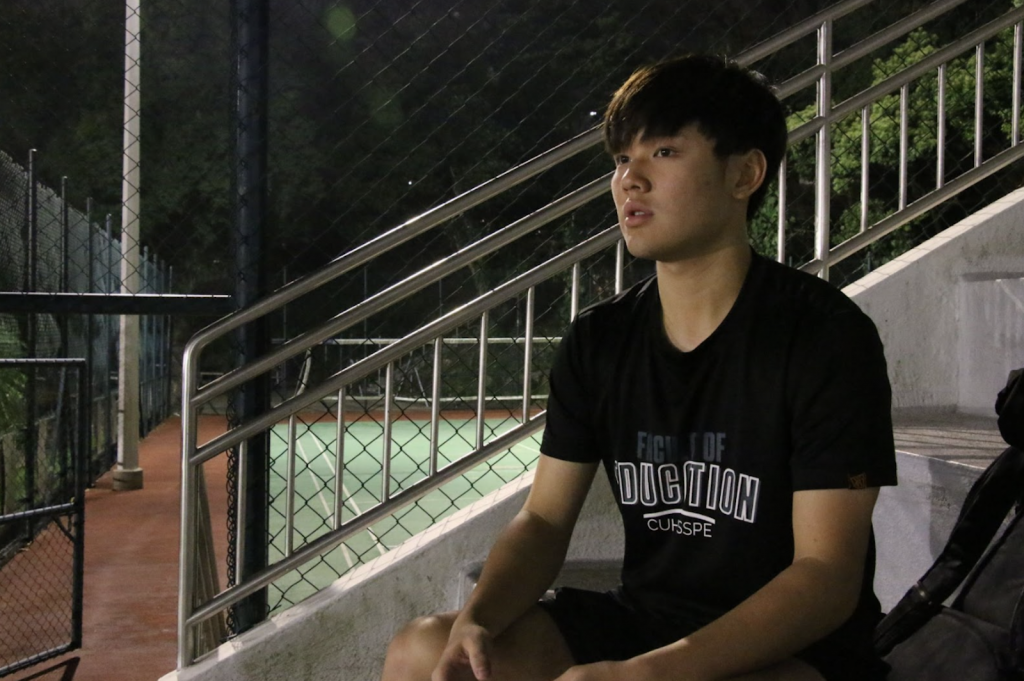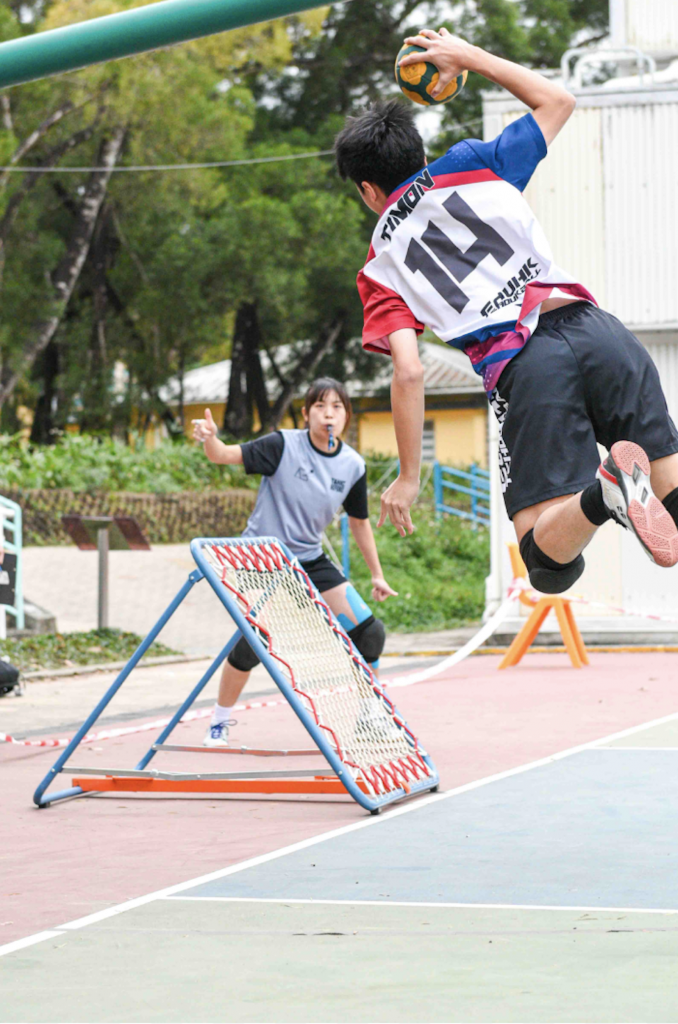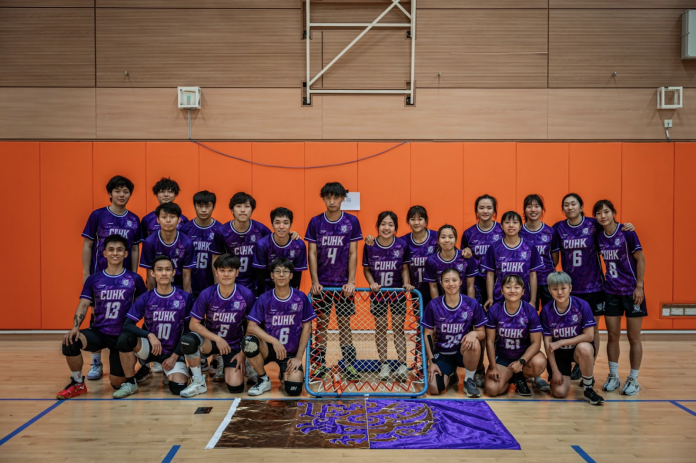Hong Kong university students play tchoukball and hope for more support to develop the sport.
By Daniel Koong
Out of his passion for the sport, Adrian Ip Tsun-hei set up the first tchoukball team for the Chinese University of Hong Kong (CUHK) to promote this niche sport in Hong Kong.
“I started playing tchoukball while studying in secondary school. I used to play football like everyone else but then I suffered from a serious leg injury. Then I considered if I should continue playing sports that might cause injuries and stop me from improving my athletic ability,” the Sports Science and Physical Education major says.
“I am lucky to have the opportunity to play this sport. It gives me a sense of excitement, and it doesn’t require physical contact as other sports like rugby,” Ip adds.

Tchoukball is a sport invented by the Swiss biologist Hermann Brandt in the 1960s. After seeing many athletes suffer from serious injuries in competitive sports, he believed modern sports should have educational value and contribute to building a well-developed human society.
Brandt created this non-contact sport, inspired by handball, volleyball and squash. It could be played outdoors, indoors and also on the beach.
The size of tchoukball is similar to handball but more grippy and sweat-resistant so players do not need to play with resins on their hands.
The court is the same size as a basketball court but with two tchoukball frames and two three-metre D’s drawn up at each baseline. Only kneepads are needed.
Each team consists of three to seven players and takes turns to attack. They aim to throw the ball to the rebounder and make it bounce outside of a certain area without letting the defenders catch it. The name tchoukball comes from the sound when the ball rebounds off the frame.
“I am a Year One student and found no tchoukball team at CUHK. So I decided to be the first one to set it up. I have passion, and I want to contribute more to the sport,” the 20-year-old player says.
“But the process has not been easy. I had to start everything from scratch. It took me around half a year and I had to overcome many obstacles,” he points out.

“About 30 members are required to start a team and it takes me a lot of time to gather the people. This sport is not well-known, and I want to find people who are genuinely passionate about it,” Ip adds.
Ip secured support from the Physical Education Unit Department in setting up a tchoukball team, providing some resources they needed.
“But we still need to book and set up the field every time by ourselves. As we are using a basketball court, we need to arrive half an hour earlier to set it up,” the CUHK tchoukball team captain says.
Timon Chong Yui-chung is a player from the EdUHK tchoukball team, a team which Ip wants his team to play against.
“I will not see the establishment of CUHK tchoukball as a threat. Instead, I am glad to see that tchoukball is developing in universities and even in Hong Kong,” the EdUHK tchoukball team player says.
“We also call it ‘gentleman ball’ in Chinese. Any physical contact is considered a foul. Penalties will be given for any act of roughing, tackling or tripping,” he adds.
“But the sport is not boring. Unlike other non-contact sports like badminton or tennis, players share a court with the opponent team. We need to shoot within three passes and the possession can switch instantly,” Chong says.

Arthur Li Ho-cheung is the current head coach for the Hong Kong tchoukball team. He studied at EdUHK and is now studying for a master’s degree in Psychology at CUHK.
“I came to the Hong Kong Institute of Education (now EdUHK) in 2013 and they also set up the tchoukball team that year. At that time tchoukball teams were set up at three tertiary education institutions,” Li says.
“Now more universities are having tchoukball organisations, a club or a team. But it is a pity that not every team works well,” he adds.
“Many teams are set up by groups of like-minded enthusiasts coming together. Without sufficient policy and financial support, it is difficult to sustain operating a team in the long run,” Li says.
Apart from running the Hong Kong team, Li is helping out in holding different tchoukball competitions.
“To get government approval for the sport, we need to hold at least three championships in the next five years. We will be holding the Asia Pacific Tchoukball Championship this year,” Lee says.
“We need to book the pitch and organise everything by ourselves. And what I often need to do is to communicate with the government and get permission. We need to apply for changing the use of the sports centre as it is not built for playing tchoukball,” he adds.
“There are three main goals in the future. The first goal is tchoukball being officially recognised. The second goal is to get more resources so we can promote the sport in the community. The third goal is to achieve a higher world ranking for both men’s team and ladies,” he says.
Edited by Liam Hordijk
Sub-edited by Lorraine Chiang







































